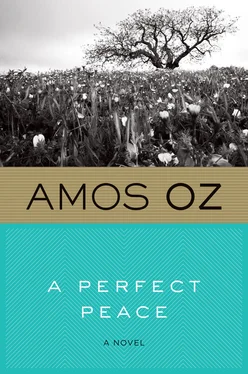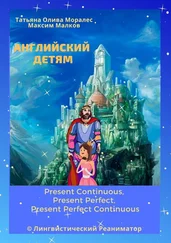It's not just that we will soon die, thought Yolek as he left the conference room for the bus station. It's that we ought to die. We have outlived our age.
He had known all along that the meeting would end without any dramatic decisions, merely with a vote to appoint yet another committee to examine the issues raised. Nevertheless, he had made two decisions of his own. The first was not to return home until the seven o'clock bus, and until then, barring rain, to stroll around the city a bit to breathe its sea air. The second was to investigate the story of the young mechanic, who had been taken on without a sufficient check. An army discharge, after all, could be forged.
Yolek walked slowly in a northwesterly direction toward the sea, into an unfamiliar neighborhood. A year ago, in the winter of '64, a new development had gone up here. Its residents had taken all their savings, borrowed more money, obtained mortgages, and otherwise swung things financially to be able to live in these blindingly white high-rise buildings, in luxury apartments that would have made the local moneybags in the shtetl they had come from — the moneybags who had laughed at their starry-eyed idealism when they set out empty-handed for Palestine thirty years ago — turn green with envy in his unmarked grave.
In vain, Yolek realized, had been the whole arduous attempt to rebuild Jewish life on a new foundation; in vain, the pioneers' tents and co-op restaurants; in vain, the creed of physical labor and life in the sun; in vain, the going barefoot, the peasant clothes, the shepherds' songs; in vain, the long nights of argument and debate. All these ex-pioneers who had skimped, saved, and borrowed to build homes, in each of them a living room; in each living room, a glass-paneled cabinet; in each glass-paneled cabinet, a fancy dinner service for twelve. "Keeping up with the Cohens," Eshkol had called it today.
Here and there, in earth trucked in from afar to cover the shifting dunes, a few pale saplings had been planted. No doubt the mayor had cut a ribbon and spoken glowingly of the future. Look at that little boy riding his bicycle down that lane. The wind is bringing him the same smell of fresh paint and whitewash that it is bringing me.
By four, the long evening had begun to set in, granting a kind of reprieve to the city of Tel Aviv. Alongside the new power station, where the Yarkon emptied into the sea, three fishermen were spreading a net. An old woman in charge of a kiosk near the last stop on the bus line looked suspiciously around and, seeing that no one was watching, treated herself to a soda from the tap. Between clouds the color of blood and clouds the color of fire, the sun was entering its last western lap. Far out on the horizon, more clouds shaped like dragons, crocodiles, whales, monstrous serpents were beginning to form. Perhaps, if his time had not run out, he should head west.
Yolek stood listening, but all he could hear from the distant buildings was a raucous whoop of children, spiteful and cruel like the sound of a lynch mob, but without the cries of a victim. Hedges trembled in the cold wind. Hibiscuses shed drops of water hidden in their leaves from the last rain.
Soon the moon would rise, distorting the rectangular roofs, creating soft, free-flowing forms, silvering the laundry on the lines that had been strung across the streets. It was then that the middle-aged survivors who lived in those streets would put on their hats and coats and wrap scarves around their throats to go out for a stroll, stepping along like cosmonauts on a planet of undependable gravity, as dreamy as sleepwalkers. Should they pass a new office building, they would see it collapse. Should a car drive by, they would hear bombs. If music poured forth from a radio, the blood would curdle in their veins. If they looked at a tree, it would burst into flames.
Tel Aviv on a winter evening between wars. A forced gaiety stretching as far as the farthest suburbs. In it a hard-working carpenter, from Cracow, Munya Liberson by name, stayed up late in his fluorescent-lit shop. His glasses perched precariously on the tip of his nose. Now and then he murmured to himself as he carefully made a measurement or inspected a joint. The flowering of so many pretty Jewish girls outside his window seemed to him a cause for grave concern. And the clamor made by the city each night to drown out the outer silence. What would it all come to? Why so many new hotels going up along the shoreline? Why this bulwark between the city and the sea?
Lest worst should come to worst. Behind this western wall, the city cowered, cringing with fear of the open spaces that lay beyond. Even as a man turns his back to a strong wind, rounds his shoulders, tucks his head hard between them, and awaits a coming blow.
And then the winter rains stopped. Overnight the fog was driven eastward, and a blue Saturday broke with the dawn. With the first fingers of light, even before the sun had risen over the ruins of Sheikh Dahr, bird survivors began to discuss their luck with great excitement. As soon as the sun came up, they broke into demented screams.
The sabbath light was warm and crystalline. Every puddle, every window pane, every strip of metal glinted and dazzled. The air buzzed and flowed like honey. Figs, mulberries, pomegranates, almonds, and arbors of grapes stood bared in their ultimate leaflessness, huge droves of birds flocking to them all. All morning long a clear wind blew from the sea, wafting its salty smells.
Early that day the kindergarten children sent up a solitary kite. It climbed tenaciously to heavenly heights, at which it seemed to be a flying genie or sea monster. Don't believe any of it, it's a trap, thought Yonatan Lifshitz as he dressed, put water on for coffee, and went out to stand on the porch. They're just decorating your death with the crepe-paper of love. If you don't make tracks now like an animal, they'll trick you into staying until you relax and forget that your life is your own. "He who forgets abets," as that poor bastard would say. That must be one of his Russian proverbs.
Rimona was sleeping on her back, her hair spread over the pillow, on her forehead a spot of sunlight that had crept through the slats of the blinds. It was Yonatan who first heard the kettle whistle.
"Get up and see what a day we've got outside! It's just what you promised, you sorceress! Get up! Let's have coffee and go for a walk."
Rimona sat up in bed like a baby, rubbing her eyes repeatedly with her tiny fists. "Yoni," she said, as if surprised to find him there, "it's you. I dreamed I found a turtle that could climb walls. I kept trying to convince it that it couldn't until you came along and said that the two of us were being silly and that you'd show us something really new. And then you woke me. There's a fresh hallah from yesterday in a plastic bag near the coffee."
One by one each of Rimona's promises came true. By nine o'clock every window on the kibbutz was open and quilts, blankets, and pillows had been hung out to air. The riverine light deepened all their colors but positively set fire to blue pillow cases and pink nightgowns.
How dazzlingly white were the little houses in that storm of blue light, their tile roofs redder than red, each smoking with a thin mist. Far off in the east, the mountains seemed to levitate in the brilliance, as if they were but their own shadows. "Just look at that!" said Azariah Gitlin to his neighbor, the hired metalworker with the torn ear. "Just look — and, oh, by the way, good morning — how spring has won the battle with a single knockout blow!"
Bolognesi, he who pondered all statements at length looking for a catch, stared hard at Azariah before answering humbly, "Praise God!"
Housemothers had already dressed their little charges in T-shirts and gym pants, placed them four abreast in the broad laundry carts, and begun to wheel them about the kibbutz. When Yolek, still in his heavy pajamas and fur-lined slippers, looked out the window at the teeming lawns and exclaimed, "What a carnival!" his wife replied through the bathroom door, "I didn't sleep again last night. And by five those birds were making such a racket I thought it was an air-raid siren. If it's not one thing, it's another."
Читать дальше












